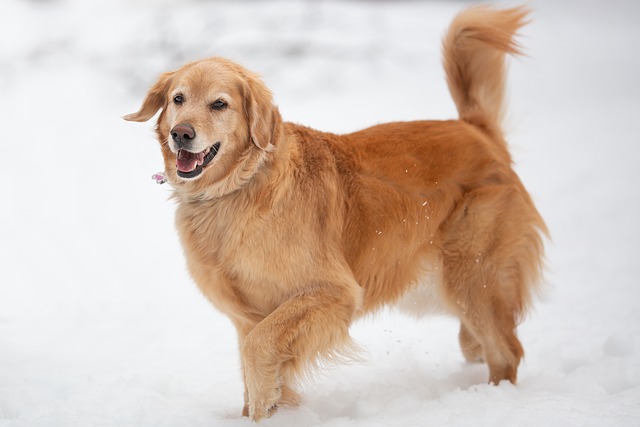
How do i train my dog to be obedient?
Watching your dog dart across the park ignoring your calls isn’t just frustrating—it can put them at risk near busy streets or public spaces.
Potty training a golden retriever puppy is like solving a fun puzzle. These friendly furballs are smart and eager to please, but every pup marches to the beat of their own drum. So, how long does it usually take? Well, you can expect consistent success within 4 to 6 months, but don't be surprised if it takes a bit longer—it's all part of the journey.
Golden retrievers are known for their gentle nature and quick learning abilities, but remember, they're still babies. Their tiny bladders can't hold much, and they're just figuring out how to control their bodily functions. Young puppies might need to go outside every 1 to 2 hours, especially after eating, drinking, sleeping, or playing. As they grow, this interval can gradually increase.
The key to effective potty training is establishing a routine. Set specific times for meals, play, and sleep, and take your puppy outside immediately afterward. Pick a designated spot in your yard and always take them to the same place. Use a consistent command like “go potty” so they start associating the words with the action. When they do their business, shower them with praise, treats, and belly rubs. Positive reinforcement goes a long way in helping them understand what you want.
 It’s important to clean up any accidents thoroughly. Use an enzymatic cleaner to remove the smell completely, as dogs are more likely to go in the same spot if they detect even a hint of urine or feces. And if you catch your puppy in the act of going indoors, make a short, sharp noise to startle them gently, then quickly take them outside. But never scold or punish them for accidents—this can make them anxious and actually delay the training process.
It’s important to clean up any accidents thoroughly. Use an enzymatic cleaner to remove the smell completely, as dogs are more likely to go in the same spot if they detect even a hint of urine or feces. And if you catch your puppy in the act of going indoors, make a short, sharp noise to startle them gently, then quickly take them outside. But never scold or punish them for accidents—this can make them anxious and actually delay the training process.
In many regions, there are regulations about pet waste disposal. Always clean up after your dog in public areas, whether it’s a park or a sidewalk. Using biodegradable poop bags and properly disposing of waste helps keep the environment clean and shows respect for your community. Plus, it’s the law in most places, and ignoring it can lead to fines.
If you’re struggling with potty training, don’t hesitate to seek help. Local dog trainers or behaviorists can offer personalized advice. You can also join online communities where fellow golden retriever owners share their experiences and tips. Remember, every puppy is unique, and what works for one might not work for another.
Potty training a golden retriever puppy is a test of patience, but the payoff is huge. Seeing your pup learn and grow, and having a clean home, makes all the effort worthwhile. Stay consistent, be positive, and enjoy the process—soon enough, your furry friend will be a potty-trained pro.

Watching your dog dart across the park ignoring your calls isn’t just frustrating—it can put them at risk near busy streets or public spaces.

New puppy owners often find themselves rushing to clean up accidents before they set in, and that’s where puppy pad training becomes a game-changer.

If you've noticed your dog's waistline disappearing and your veterinarian has mentioned those few extra pounds, your first instinct might be to simply reduce the amount of food in their bowl.

Training a dog to use a designated spot indoors isn’t as daunting as many new owners fear, but it does take consistency and an understanding of your pet’s needs.

That moment of dread on a walk is all too familiar for many new dog owners. You see another dog approaching down the sidewalk of your neighborhood

If the sight of another dog on your neighborhood walk makes your heart sink as your own dog erupts into a frenzy of barking and lunging, you're not alone.